
Riot Round-Up: The Best Books of 2014
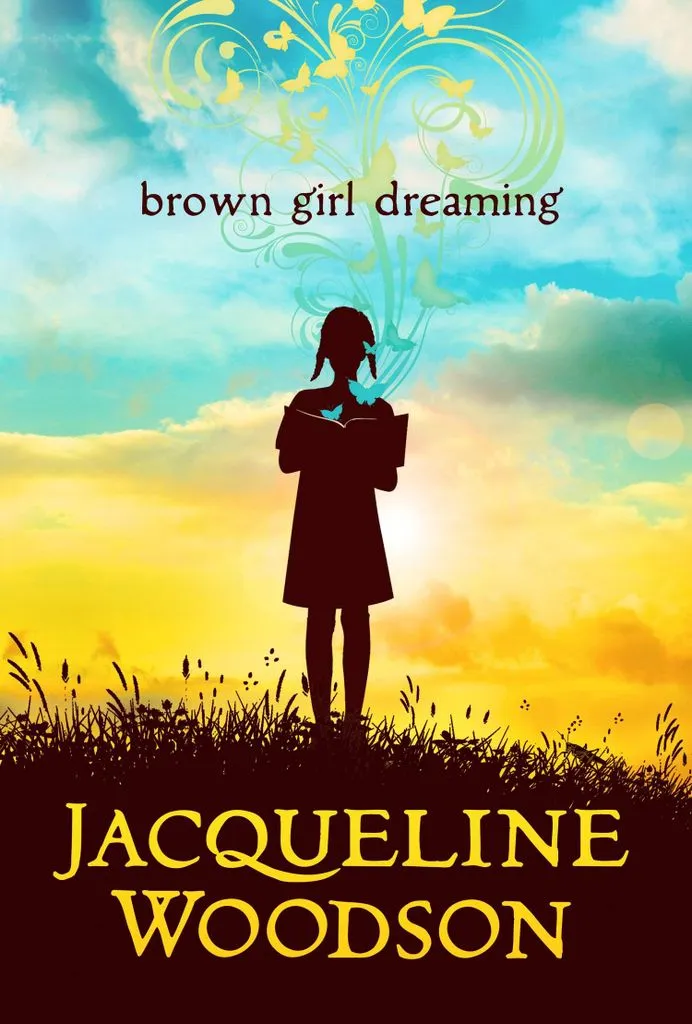 Brown Girl Dreaming by Jacqueline Woodson
This book is getting a lot of attention recently due to some less than favorable situations that occurred at the National Book Awards. However, the one plus side to that has been the fact that so many more people have been exposed to Brown Girl Dreaming. I was not prepared at all for what this book was. I went into it with slight hesitation. I don’t read a lot of middle grade books. I am not extremely comfortable with books written in verse. But everything about this book was perfection. Jacqueline Woodson’s experiences are so real and honest and provide such insight into the life of a young black girl growing up in the South in the 1960s. I have been shoving this book into people’s hands since I’ve read it and I can see myself continuing to do so for a long, long time. -Rincey Abraham
Brown Girl Dreaming by Jacqueline Woodson
This book is getting a lot of attention recently due to some less than favorable situations that occurred at the National Book Awards. However, the one plus side to that has been the fact that so many more people have been exposed to Brown Girl Dreaming. I was not prepared at all for what this book was. I went into it with slight hesitation. I don’t read a lot of middle grade books. I am not extremely comfortable with books written in verse. But everything about this book was perfection. Jacqueline Woodson’s experiences are so real and honest and provide such insight into the life of a young black girl growing up in the South in the 1960s. I have been shoving this book into people’s hands since I’ve read it and I can see myself continuing to do so for a long, long time. -Rincey Abraham
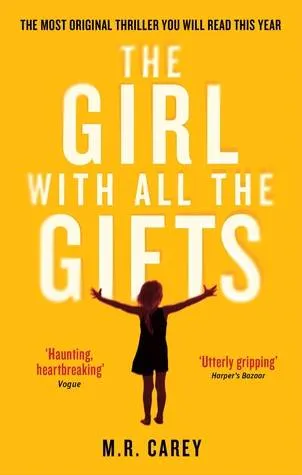 The Girl With All the Gifts by M.R. Carey
This is one of those books that gives away very little at the outset. You have a very limited view of the events that are occurring and an even narrower view of the world in which those events take place. What you do have is insight of a very special little girl named Melanie. I could spend a lot of time and space explaining the intricacies of the world that she lives in, but I wouldn’t want to deprive any of you of the wonder that comes with experiencing the world through her eyes. It’s a dangerous place, but then she’s not exactly safe to be around, either. The book is suspenseful, violent, and dark, but it is also full of innocence. It charts the beginning of a new world, and Melanie is the one who will show us how to survive in it. -Cassandra Neace
The Girl With All the Gifts by M.R. Carey
This is one of those books that gives away very little at the outset. You have a very limited view of the events that are occurring and an even narrower view of the world in which those events take place. What you do have is insight of a very special little girl named Melanie. I could spend a lot of time and space explaining the intricacies of the world that she lives in, but I wouldn’t want to deprive any of you of the wonder that comes with experiencing the world through her eyes. It’s a dangerous place, but then she’s not exactly safe to be around, either. The book is suspenseful, violent, and dark, but it is also full of innocence. It charts the beginning of a new world, and Melanie is the one who will show us how to survive in it. -Cassandra Neace
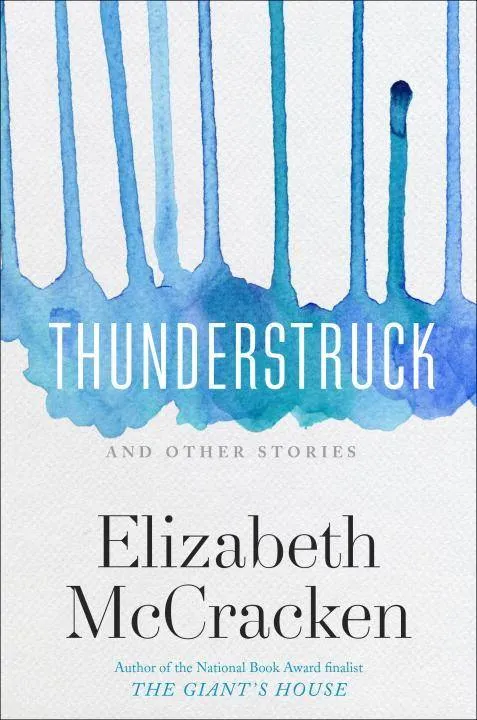 Thunderstruck by Elizabeth McCracken
Elizabeth McCracken is a national treasure, and every new book from her is a cause for celebration. Especially this, her first collection of short stories in twenty years! Thunderstruck is nine stories that combine melancholy and humor, and have more hopes dashed than dashes of hope. But that is what makes her writing so perfect, so real. The stories are full of the most precise, beautiful sentences recounting slightly dark or tragic events. There’s grieving mothers, murdered library patrons, disappointing children – each story is a brilliant tale with a gothic sheen. To recap: I love her. Elizabeth McCracken’s books are rare astrological events that happen once every several years, and should not be missed. And if two decades is what she needs to produce another collection like this, I can’t wait for 2034. -Liberty Hardy
Thunderstruck by Elizabeth McCracken
Elizabeth McCracken is a national treasure, and every new book from her is a cause for celebration. Especially this, her first collection of short stories in twenty years! Thunderstruck is nine stories that combine melancholy and humor, and have more hopes dashed than dashes of hope. But that is what makes her writing so perfect, so real. The stories are full of the most precise, beautiful sentences recounting slightly dark or tragic events. There’s grieving mothers, murdered library patrons, disappointing children – each story is a brilliant tale with a gothic sheen. To recap: I love her. Elizabeth McCracken’s books are rare astrological events that happen once every several years, and should not be missed. And if two decades is what she needs to produce another collection like this, I can’t wait for 2034. -Liberty Hardy
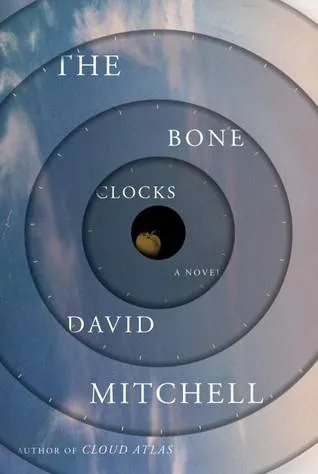 The Bone Clocks by David Mitchell
I put a lot of pressure on this book to be great. Mitchell is on my living-authors Mt. Rushmore, so while I’m probably predisposed to adore his every published word, each new release has a whole lot to live up to. For me, The Bone Clocks rose to the challenge. The novel follows a young girl named Holly through the tumultuous, fantastical decades of her life, while – in typical Mitchell fashion – weaving into the central narrative snatches of other characters’ stories, all of which orbit Holly in significant ways. Mitchell is a master of planting seeds early in novels that take their sweet time sprouting, so I won’t say more about the plot, but I can tell you that the sprouts are worth it. If the book is flawed, its flaws are born of high-wire-act ambition, always worth the price of admission. The Bone Clocks is a big book in every sense of the word, and it carried the weight of all my expectations straight to the top of the very steep mountain that is my list of wonderful books in 2014. -Josh Corman
The Bone Clocks by David Mitchell
I put a lot of pressure on this book to be great. Mitchell is on my living-authors Mt. Rushmore, so while I’m probably predisposed to adore his every published word, each new release has a whole lot to live up to. For me, The Bone Clocks rose to the challenge. The novel follows a young girl named Holly through the tumultuous, fantastical decades of her life, while – in typical Mitchell fashion – weaving into the central narrative snatches of other characters’ stories, all of which orbit Holly in significant ways. Mitchell is a master of planting seeds early in novels that take their sweet time sprouting, so I won’t say more about the plot, but I can tell you that the sprouts are worth it. If the book is flawed, its flaws are born of high-wire-act ambition, always worth the price of admission. The Bone Clocks is a big book in every sense of the word, and it carried the weight of all my expectations straight to the top of the very steep mountain that is my list of wonderful books in 2014. -Josh Corman
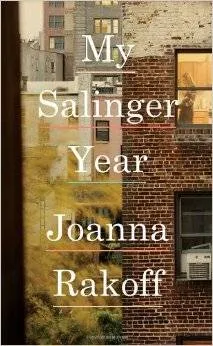 My Salinger Year by Joanna Rakoff
My Salinger Year is the story of Joanna Rakoff’s first year out of college, when she became an assistant at the literary agency that represented J.D. Salinger. This book is a coming-of-age memoir with a literary industry twist, the story of a woman working and realizing her own creative aspirations. But it’s not all insider reporting from the literary world – it’s also insufficient funds, bad boyfriends, friendship angst, and cold New York winters. I read it in one day – nearly in one sitting – on a flight from the west coast to the east; I didn’t want to leave the world that Rakoff captured, and when the book ended, it was with such love, such care, such a tender touch that I wished I could talk to my seatmate about it. -Dana Staves
My Salinger Year by Joanna Rakoff
My Salinger Year is the story of Joanna Rakoff’s first year out of college, when she became an assistant at the literary agency that represented J.D. Salinger. This book is a coming-of-age memoir with a literary industry twist, the story of a woman working and realizing her own creative aspirations. But it’s not all insider reporting from the literary world – it’s also insufficient funds, bad boyfriends, friendship angst, and cold New York winters. I read it in one day – nearly in one sitting – on a flight from the west coast to the east; I didn’t want to leave the world that Rakoff captured, and when the book ended, it was with such love, such care, such a tender touch that I wished I could talk to my seatmate about it. -Dana Staves
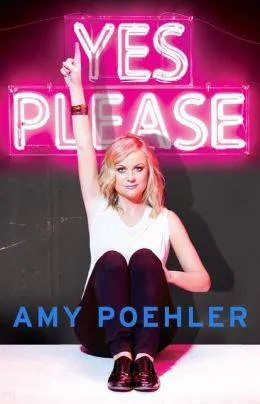 Yes Please by Amy Poehler
My reasons are a little biased and really personal to my reading experience. The night of Amy Poehler’s book event in Boston, I had to make a therapy appointment because my depression was getting out of control again. Yes Please became that right book at the right time, like that song that shows up on the radio right when you’re feeling angry or upset or even happy. Reading the book was like its own sort of therapy for me, which says a lot, given that I hadn’t felt the “reading bug” for weeks and weeks. -Amanda Diehl
Yes Please by Amy Poehler
My reasons are a little biased and really personal to my reading experience. The night of Amy Poehler’s book event in Boston, I had to make a therapy appointment because my depression was getting out of control again. Yes Please became that right book at the right time, like that song that shows up on the radio right when you’re feeling angry or upset or even happy. Reading the book was like its own sort of therapy for me, which says a lot, given that I hadn’t felt the “reading bug” for weeks and weeks. -Amanda Diehl
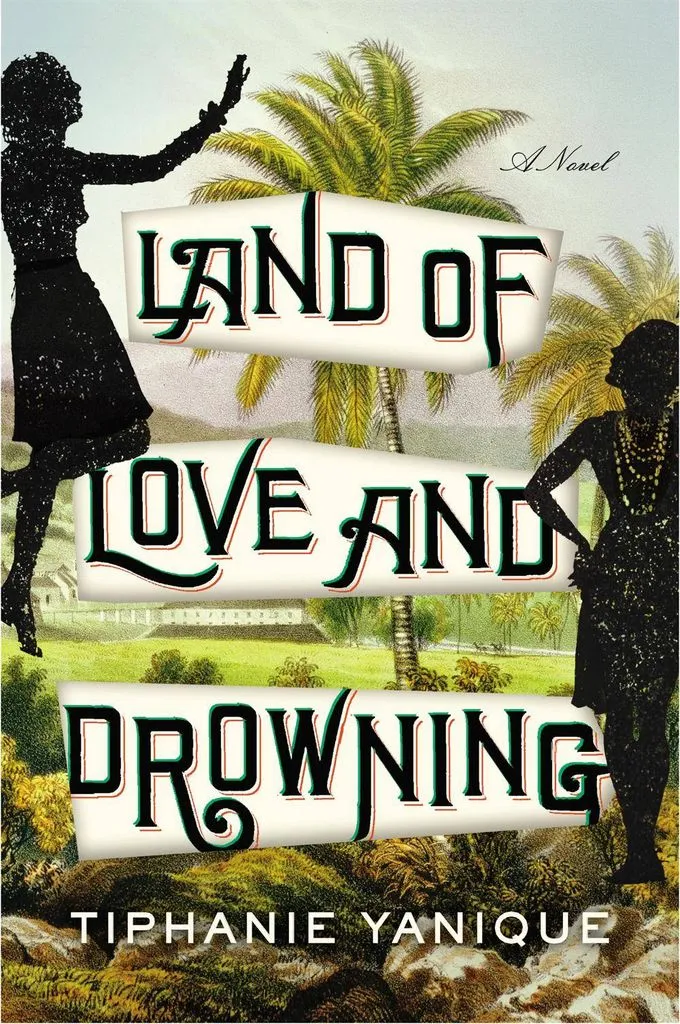 Land of Love and Drowning by Tiphanie Yanique
This novel knocked the breath out of me when I first read it, and I’ve been thinking about it and returning to it for months since. Through a story about two sisters who lose their parents in a shipwreck and are left to navigate life largely on their own, Yanique shows us the Virgin Islands in the early twentieth century, a nation in transition viewed through the lens of a family bound by magic and curses and the simple tragedy of being human. This is a book that makes its own gravity; Yanique’s gorgeous sentences and captivating characters took hold of me and refused to let go, while the ideas they challenged me to explore demanded that I read slowly and paused often. This is a book about family and history and sex and culture and the hunger for a life that is bigger, richer, fuller, longer. It’s about how we are beautiful, and how we are broken. This is a book that does what great books are meant to do, and it’s one that reminded me why I read and why books matter. -Rebecca Joines Schinsky
Land of Love and Drowning by Tiphanie Yanique
This novel knocked the breath out of me when I first read it, and I’ve been thinking about it and returning to it for months since. Through a story about two sisters who lose their parents in a shipwreck and are left to navigate life largely on their own, Yanique shows us the Virgin Islands in the early twentieth century, a nation in transition viewed through the lens of a family bound by magic and curses and the simple tragedy of being human. This is a book that makes its own gravity; Yanique’s gorgeous sentences and captivating characters took hold of me and refused to let go, while the ideas they challenged me to explore demanded that I read slowly and paused often. This is a book about family and history and sex and culture and the hunger for a life that is bigger, richer, fuller, longer. It’s about how we are beautiful, and how we are broken. This is a book that does what great books are meant to do, and it’s one that reminded me why I read and why books matter. -Rebecca Joines Schinsky
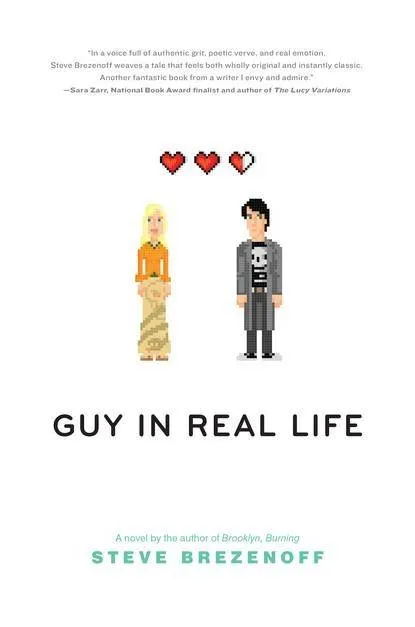 Guy in Real Life by Steve Brezenoff: I almost feel as though my selection for Best Book of 2014 is unfair. I’ve been talking about this delightful Young Adult novel non-stop throughout the year, and pretty much knew it was my favorite book of 2014 back in the Spring when I had an ARC. I’m sorry, other books released this year. You didn’t stand a chance.
The first thing that pulled me into this book was the flawless cover, which reminded me of the golden days of playing games like Quest for Glory, King’s Quest, Space Quest… basically all of those Sierra Quest-ish games on the PC, that I adored as a kid and played as a teenager.
And the story, of two geeks that bond over RPGS and MMOS over the course of a narrative full of geeky charm… I’ve said it before, and I’ll say it again: it felt like this book was written just for me. And the confusion that the quirky, nerdy characters feel throughout the novel, what they want, their struggles with identity and their future… it all feels so very real, even when the narrative takes you into the realms of games they are playing. In fact, sometimes that’s where things feel the most real. So yes. Best Book of 2014, right here. Go buy it. -Eric Smith
Guy in Real Life by Steve Brezenoff: I almost feel as though my selection for Best Book of 2014 is unfair. I’ve been talking about this delightful Young Adult novel non-stop throughout the year, and pretty much knew it was my favorite book of 2014 back in the Spring when I had an ARC. I’m sorry, other books released this year. You didn’t stand a chance.
The first thing that pulled me into this book was the flawless cover, which reminded me of the golden days of playing games like Quest for Glory, King’s Quest, Space Quest… basically all of those Sierra Quest-ish games on the PC, that I adored as a kid and played as a teenager.
And the story, of two geeks that bond over RPGS and MMOS over the course of a narrative full of geeky charm… I’ve said it before, and I’ll say it again: it felt like this book was written just for me. And the confusion that the quirky, nerdy characters feel throughout the novel, what they want, their struggles with identity and their future… it all feels so very real, even when the narrative takes you into the realms of games they are playing. In fact, sometimes that’s where things feel the most real. So yes. Best Book of 2014, right here. Go buy it. -Eric Smith
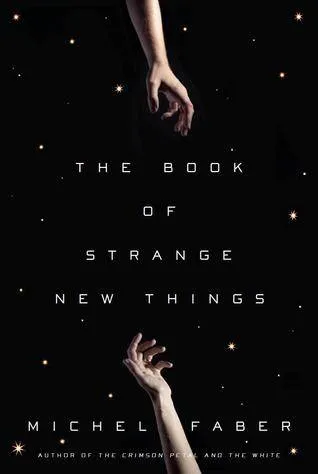 The Book of Strange New Things by Michel Faber
The best science-fiction isn’t about the future, it’s about the essence of humanity. I could easily try and sell you on this book by bringing up its sci-fi plot points, an alien race, a collapsing Earth, and all that. They’re all expertly done, but what makes this book transcend into the upper echelon of sci-fi is its look into one man’s heart. Faber’s novel set on a planet being colonized by a huge corporation has the unlikely subjects of religious faith, marriage, addiction, compassion, and serving the greater good. It takes on these big philosophical issues in a story that manages to both unfold slowly and move breathlessly forward. It’s a book that takes root in your heart and stays there for a long while. -Jessica Woodbury
The Book of Strange New Things by Michel Faber
The best science-fiction isn’t about the future, it’s about the essence of humanity. I could easily try and sell you on this book by bringing up its sci-fi plot points, an alien race, a collapsing Earth, and all that. They’re all expertly done, but what makes this book transcend into the upper echelon of sci-fi is its look into one man’s heart. Faber’s novel set on a planet being colonized by a huge corporation has the unlikely subjects of religious faith, marriage, addiction, compassion, and serving the greater good. It takes on these big philosophical issues in a story that manages to both unfold slowly and move breathlessly forward. It’s a book that takes root in your heart and stays there for a long while. -Jessica Woodbury
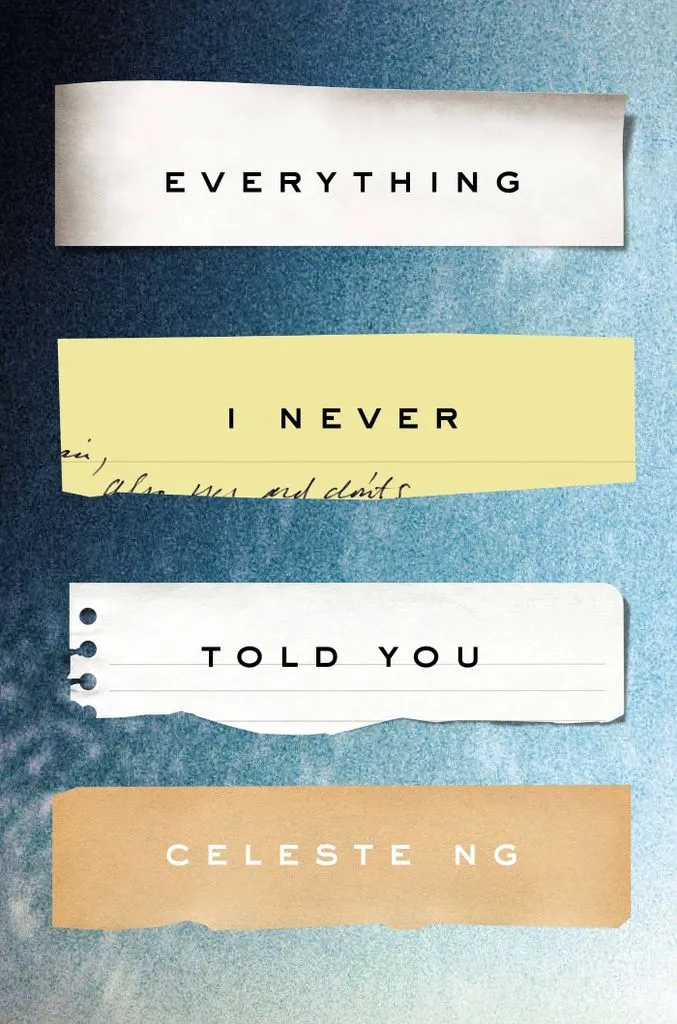 Everything I Never Told You by Celeste Ng
Lydia, a favorite teenaged daughter to a Chinese father and a white mother, dies in the first sentence. The rest of the book is about how that happened, the family secrets and pressures and heartbreaks that led to it happening, and all the things we never admit to the ones we love, or to ourselves. This is a heavy consideration of race, gender, and family, wrapped up in a mystery that will keep you turning the pages until you look up and wonder how you read that entire book in one sitting. -Amanda Nelson
Everything I Never Told You by Celeste Ng
Lydia, a favorite teenaged daughter to a Chinese father and a white mother, dies in the first sentence. The rest of the book is about how that happened, the family secrets and pressures and heartbreaks that led to it happening, and all the things we never admit to the ones we love, or to ourselves. This is a heavy consideration of race, gender, and family, wrapped up in a mystery that will keep you turning the pages until you look up and wonder how you read that entire book in one sitting. -Amanda Nelson
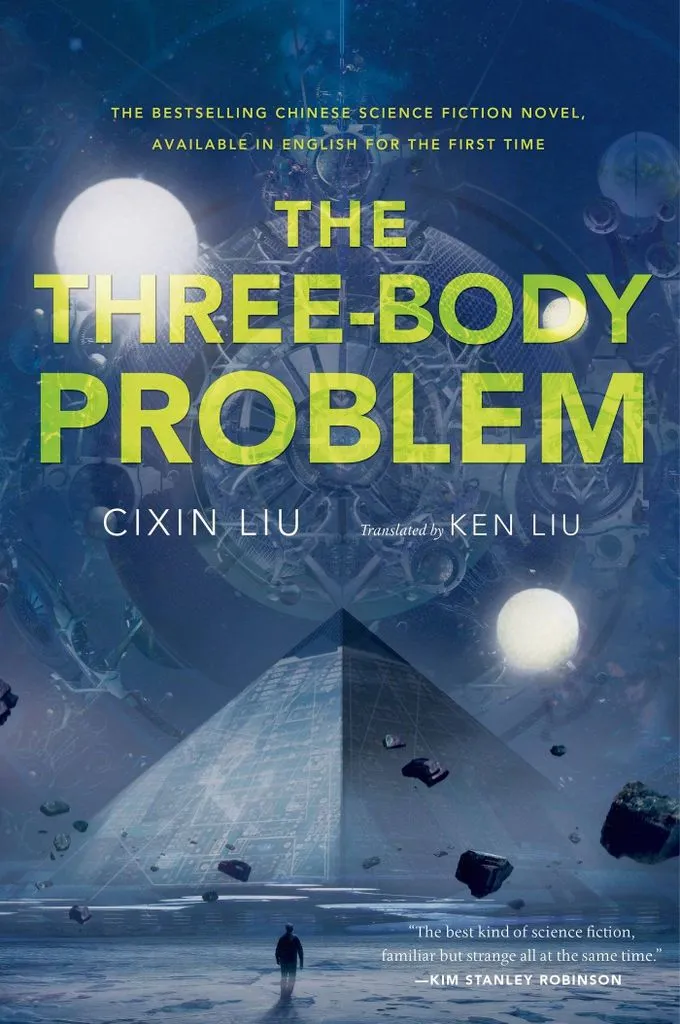 The Three-Body Problem by Cixin Liu
The Three-Body Problem, already a huge hit in China, is now the very first Chinese science fiction novel available for English-language readers. Here, Liu asks us to imagine what life was like during China’s Cultural Revolution in the 1960s and then apply that knowledge of intellectual harassment and violent suppression to the present-day, and to an opportunity to make first contact with an alien race. Should the human race resist such a meeting, or welcome the aliens with open arms, in the hope that otherworldly brains can save humanity from its self-destructive tendencies? And there’s so much more: physics, math, astrophysics, a virtual-reality “game” in which people try to solve the “three-body problem,” and all written so that a non-science person like me can understand it. Add to that Ken Liu’s beautiful, elegant translation. The Dark Forest, the next novel in the trilogy, is out in English next year. -Rachel Cordasco
The Three-Body Problem by Cixin Liu
The Three-Body Problem, already a huge hit in China, is now the very first Chinese science fiction novel available for English-language readers. Here, Liu asks us to imagine what life was like during China’s Cultural Revolution in the 1960s and then apply that knowledge of intellectual harassment and violent suppression to the present-day, and to an opportunity to make first contact with an alien race. Should the human race resist such a meeting, or welcome the aliens with open arms, in the hope that otherworldly brains can save humanity from its self-destructive tendencies? And there’s so much more: physics, math, astrophysics, a virtual-reality “game” in which people try to solve the “three-body problem,” and all written so that a non-science person like me can understand it. Add to that Ken Liu’s beautiful, elegant translation. The Dark Forest, the next novel in the trilogy, is out in English next year. -Rachel Cordasco
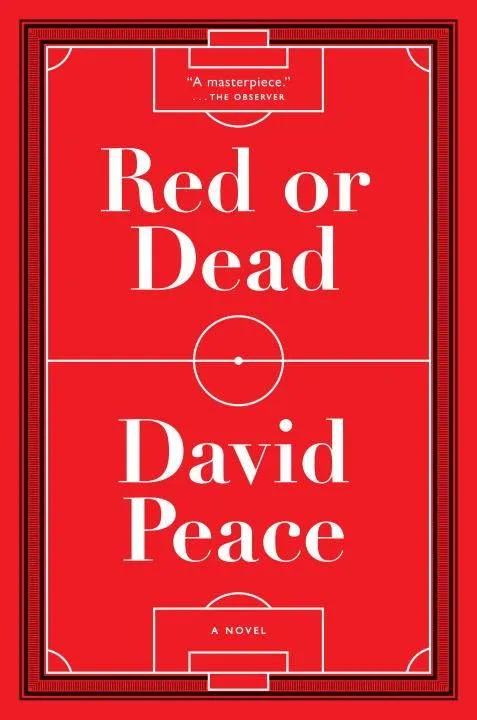 Red or Dead by David Peace
Way back in March I picked Red or Dead as my favorite book of the month. Even though it’s been eight months worth of reading since then, I am still going to pick Red or Dead as my favorite book of 2014. It’s the kind of book that sticks with you (literally). David Peace’s writing reverberates in your head, pulling you along headfirst into the story of Manager Bill Shankly and the Liverpool Football Club from 1959 – 1974. This sounds like a book for sports fans, right? And it is. But that is not all it is. No, sir. Red or Dead is a feat of writing. The manner in which Peace shares this history with us is just as important as the story itself. It’s not often that writing can transport you through style. Peace more than just succeeds in this. He excels. He uses cadence and repetition and staccato rhythm and all of a sudden he puts us in the stands, in Bill’s home, in the locker room. We are at home, at Anfield. LI-VER-POOL, LI-VER-POOL, LI-VER-POOL. -Preeti Chhibber
Red or Dead by David Peace
Way back in March I picked Red or Dead as my favorite book of the month. Even though it’s been eight months worth of reading since then, I am still going to pick Red or Dead as my favorite book of 2014. It’s the kind of book that sticks with you (literally). David Peace’s writing reverberates in your head, pulling you along headfirst into the story of Manager Bill Shankly and the Liverpool Football Club from 1959 – 1974. This sounds like a book for sports fans, right? And it is. But that is not all it is. No, sir. Red or Dead is a feat of writing. The manner in which Peace shares this history with us is just as important as the story itself. It’s not often that writing can transport you through style. Peace more than just succeeds in this. He excels. He uses cadence and repetition and staccato rhythm and all of a sudden he puts us in the stands, in Bill’s home, in the locker room. We are at home, at Anfield. LI-VER-POOL, LI-VER-POOL, LI-VER-POOL. -Preeti Chhibber
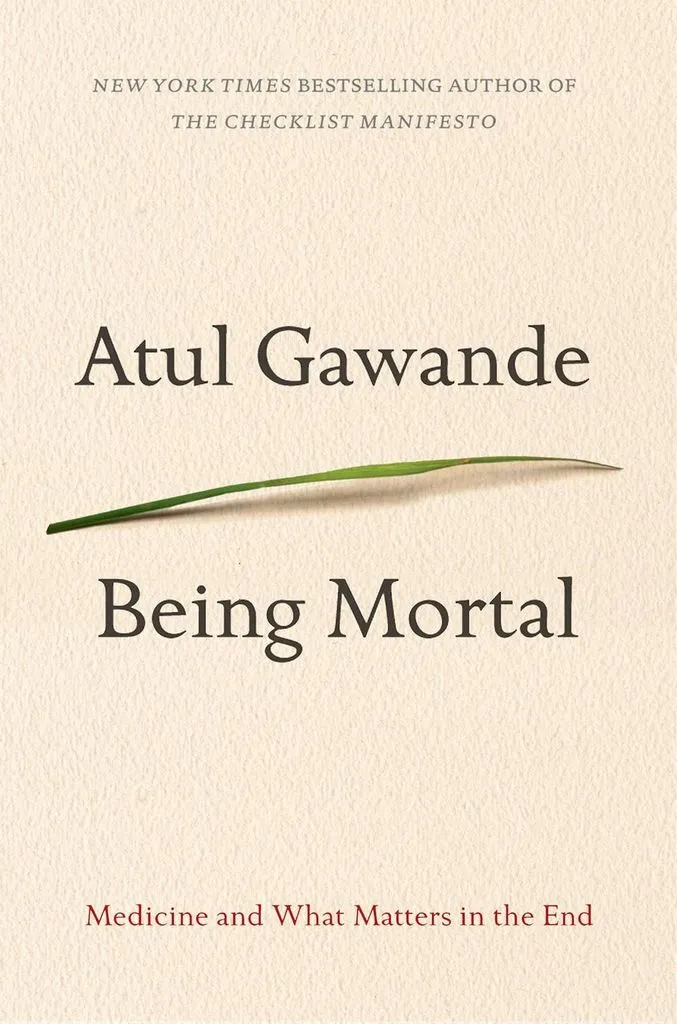 Being Mortal by Atul Gawande
Being Mortal by Atul Gawande
Being Mortal is a thought-provoking book confronting the difficult topics of aging and death. While it might sound morbid, Gawande writes beautifully and eloquently on the subject, discussing how we do ourselves and our parents and grandparents a disservice by not discussing death more openly. Gawande views the subject of elder care and death through a unique cultural lens because of his South Asian background, but also discusses it in his professional capacity as a surgeon. He writes compassionately but also convincingly about how we must change our views on mortality, relating his own difficult experiences watching his father’s decline. It’s a gorgeous, moving book that should be required reading for anyone and everyone. -Swapna Krishna
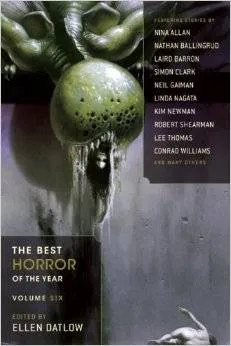 The Best Horror Of The Year: Volume 6 by Ellen Datlow
Ellen Datlow is a remarkable name in fiction. To my knowledge, I’ve never read a single piece of fiction by her (I don’t know that she’s written any) but all I have to do is see “Edited by Ellen Datlow” on a cover of an anthology, and I will buy it on the spot, sight-unseen. There are many amazing editors in the world, but in my humble opinion, she tops them all. I doubt I’d get much argument on this point. Her eye for horror fiction is particularly astute (it links up to my own tastes very well), and this year it’s as razor sharp as ever. Best Horror of the Year 6 contains stories by people like Neil Gaiman, Kim Newman, Nina Allan and Brian Hodge, and every story is excellent. They vary from each other, they are deep and intelligent and very definitely horror. Her record for editing staggering anthologies continues unabated. This is well worth your time.
On a personal note, my copy was given to me by the Book Rioters who descended on the Book Expo America last year (Book Rioters are the best people in the world. You know this.) It is signed and personalized to me. I cannot convey how I geeked out about that. I’ve been a fan of Ellen Datlow since I was 15 or so. This anthology is a thing I will grab if the house catches on fire. -Peter Damien
The Best Horror Of The Year: Volume 6 by Ellen Datlow
Ellen Datlow is a remarkable name in fiction. To my knowledge, I’ve never read a single piece of fiction by her (I don’t know that she’s written any) but all I have to do is see “Edited by Ellen Datlow” on a cover of an anthology, and I will buy it on the spot, sight-unseen. There are many amazing editors in the world, but in my humble opinion, she tops them all. I doubt I’d get much argument on this point. Her eye for horror fiction is particularly astute (it links up to my own tastes very well), and this year it’s as razor sharp as ever. Best Horror of the Year 6 contains stories by people like Neil Gaiman, Kim Newman, Nina Allan and Brian Hodge, and every story is excellent. They vary from each other, they are deep and intelligent and very definitely horror. Her record for editing staggering anthologies continues unabated. This is well worth your time.
On a personal note, my copy was given to me by the Book Rioters who descended on the Book Expo America last year (Book Rioters are the best people in the world. You know this.) It is signed and personalized to me. I cannot convey how I geeked out about that. I’ve been a fan of Ellen Datlow since I was 15 or so. This anthology is a thing I will grab if the house catches on fire. -Peter Damien
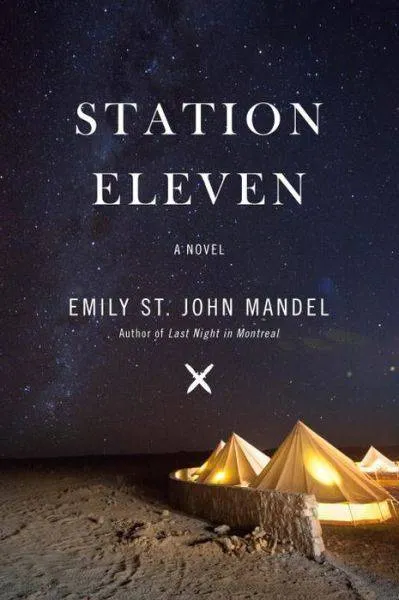 Station Eleven by Emily St. John Mandel
There are very few books that I read where I’m hooked by the first chapter. It usually takes me a quarter to a third of the book to settle in and know I’m in it for the long haul. Sometimes–I get shivers just thinking about it–sometimes I pick up a book, though, and know immediately. I know that I will sit and read that book until it’s done in one go. I know that I will have a book hangover with the same great and damaging effects as 14 shots of tequila. I know that I will underline and dogear my way through the whole book (something I don’t normally do).
Station Eleven was that book for me this year. -Nikki Steele
Station Eleven by Emily St. John Mandel
There are very few books that I read where I’m hooked by the first chapter. It usually takes me a quarter to a third of the book to settle in and know I’m in it for the long haul. Sometimes–I get shivers just thinking about it–sometimes I pick up a book, though, and know immediately. I know that I will sit and read that book until it’s done in one go. I know that I will have a book hangover with the same great and damaging effects as 14 shots of tequila. I know that I will underline and dogear my way through the whole book (something I don’t normally do).
Station Eleven was that book for me this year. -Nikki Steele
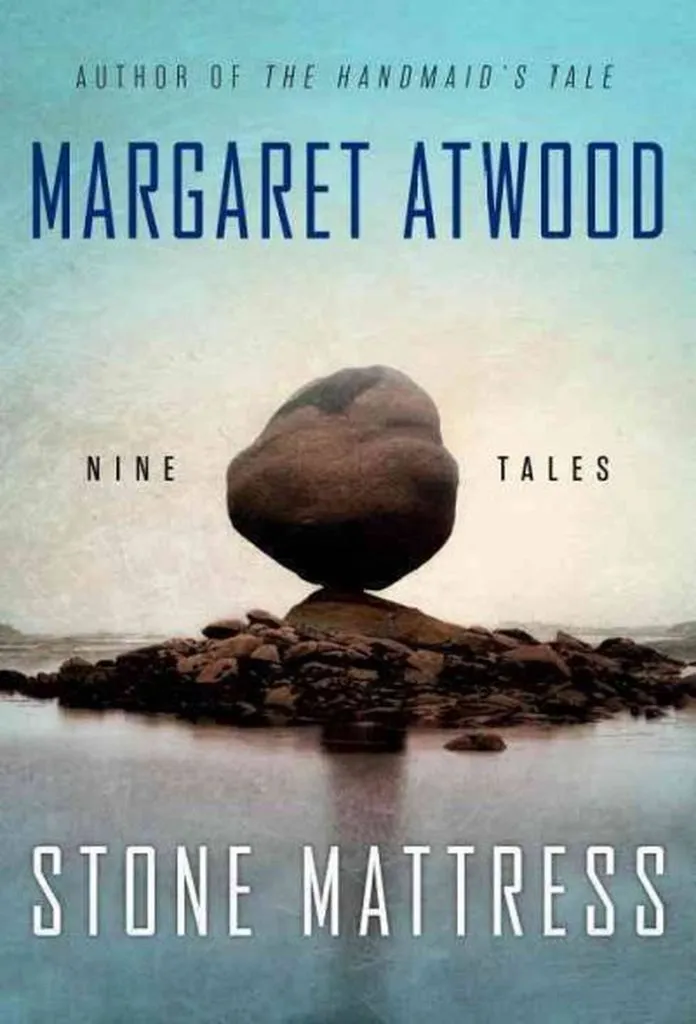 Stone Mattress: Nine Tales by Margaret Atwood
I’ve been a long-time Atwood fan, but I wasn’t sure what to expect with Stone Mattress (mainly because I was just coming off the heels of reading the the last book in the MaddAddam trilogy, which is very different, thematically). However, I think I may have enjoyed Stone Mattress even more than previous books: there is a delightfully sinister undercurrent threaded throughout the stories, which explore the darkest and saddest parts of human existence in relatable, almost mundane contexts. I won’t go into too much detail about the contents of the nine individual stories, but rest assured they will leave you nodding with understanding, gasping in surprise, and reveling in the mastery of Atwood’s use of language and emotion. – Rita Meade
Stone Mattress: Nine Tales by Margaret Atwood
I’ve been a long-time Atwood fan, but I wasn’t sure what to expect with Stone Mattress (mainly because I was just coming off the heels of reading the the last book in the MaddAddam trilogy, which is very different, thematically). However, I think I may have enjoyed Stone Mattress even more than previous books: there is a delightfully sinister undercurrent threaded throughout the stories, which explore the darkest and saddest parts of human existence in relatable, almost mundane contexts. I won’t go into too much detail about the contents of the nine individual stories, but rest assured they will leave you nodding with understanding, gasping in surprise, and reveling in the mastery of Atwood’s use of language and emotion. – Rita Meade
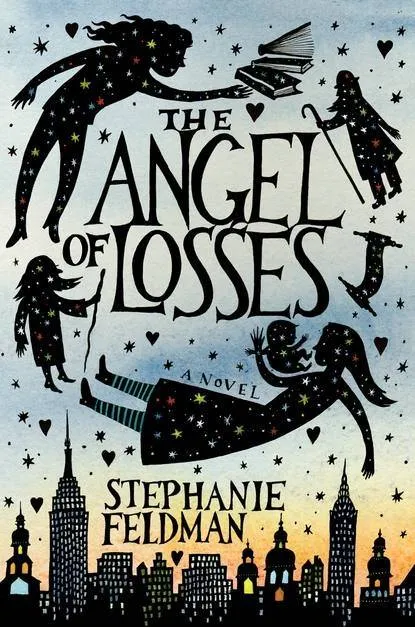 The Angel of Losses by Stephanie Feldman
It’s weird to say, but I read my favorite book of 2014 in 2013. Just about a year ago, I picked The Angel of Losses up, somewhat randomly, and I’ve been singing its praises ever since. A beautiful accomplishment, Feldman’s debut novel has it all, as I cataloged in an Inbox/Outbox last December: “Jewish folklore. Family secrets. Hidden identities. Hidden notebooks. Bitter estrangements. The past–pasts–roaring up to meet the present.” It’s excellently written, cleverly plotted, generously felt, and just plain fun. So give yourself a great Hanukkah present this year and get a copy of The Angel of Losses to read, love, and share. -Derek Attig
The Angel of Losses by Stephanie Feldman
It’s weird to say, but I read my favorite book of 2014 in 2013. Just about a year ago, I picked The Angel of Losses up, somewhat randomly, and I’ve been singing its praises ever since. A beautiful accomplishment, Feldman’s debut novel has it all, as I cataloged in an Inbox/Outbox last December: “Jewish folklore. Family secrets. Hidden identities. Hidden notebooks. Bitter estrangements. The past–pasts–roaring up to meet the present.” It’s excellently written, cleverly plotted, generously felt, and just plain fun. So give yourself a great Hanukkah present this year and get a copy of The Angel of Losses to read, love, and share. -Derek Attig
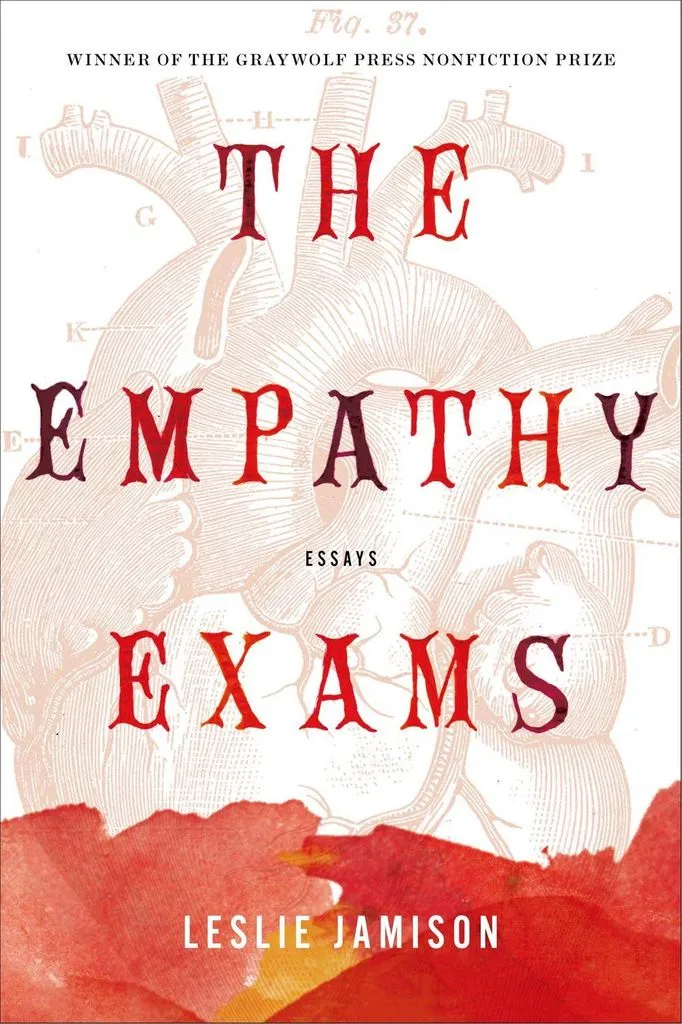 The Empathy Exams by Leslie Jamison
I started reading The Empathy Exams while sitting in the airport, waiting for a red-eye flight home. Even in the middle of a mental haze, I knew this was going to be one of those books that bent my brain and made me think in a new way. This essay collection is a wide-ranging look at empathy and the world of pain and suffering, but it’s not doom and gloom. Leslie Jamison is profoundly curious and willing to interrogate herself and others as she explores these issues. I’ve shoved this book at more people than I can count because it was just so great. -Kim Ukura
The Empathy Exams by Leslie Jamison
I started reading The Empathy Exams while sitting in the airport, waiting for a red-eye flight home. Even in the middle of a mental haze, I knew this was going to be one of those books that bent my brain and made me think in a new way. This essay collection is a wide-ranging look at empathy and the world of pain and suffering, but it’s not doom and gloom. Leslie Jamison is profoundly curious and willing to interrogate herself and others as she explores these issues. I’ve shoved this book at more people than I can count because it was just so great. -Kim Ukura
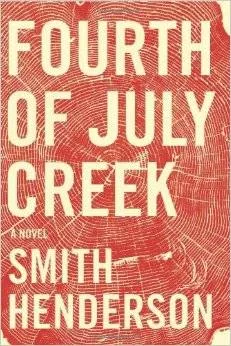 Fourth of July Creek by Smith Henderson
I wanted to rub my face all over it before I read it (because it feels really good), and then when I finished it I wanted to rub my face all over it so maybe some genius would be absorbed through my pores. Social worker, Pete Snow, tries to help a malnourished boy who lives in the Montana woods. He meets the kid’s dad and tries to help. Pete’s own life spins out of control, and he finds himself in the middle of a manhunt. Not only was this the best book I’ve read all year, it’s one of the best books I have EVER read. They hand out big shiny prizes for books like these. -Emily Gatlin
Fourth of July Creek by Smith Henderson
I wanted to rub my face all over it before I read it (because it feels really good), and then when I finished it I wanted to rub my face all over it so maybe some genius would be absorbed through my pores. Social worker, Pete Snow, tries to help a malnourished boy who lives in the Montana woods. He meets the kid’s dad and tries to help. Pete’s own life spins out of control, and he finds himself in the middle of a manhunt. Not only was this the best book I’ve read all year, it’s one of the best books I have EVER read. They hand out big shiny prizes for books like these. -Emily Gatlin
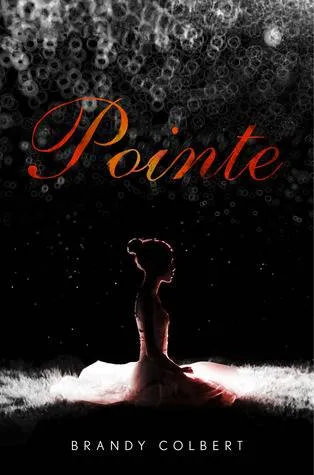 Pointe by Brandy Colbert
I’ve talked about this book left and right all year, and there’s good reason: it’s an example of exemplary-executed, memorable, and gut-punching YA. Theo is an elite black ballerina in a world where she stands out for that. Her best friend Donovan has just returned after being kidnapped four years ago, and when he comes back, everything that Theo dealt with in her past comes flooding back, as well. Pointe is about what happens when relationships aren’t what they seem, the value of friends you can rely on (as well as those you can’t), disordered eating, mental illness, and it features a knock-out voice. While there are a lot of things going on in the story, many relayed through Theo’s memory, they’re layered and braided together strongly. Theo is imperfect and flawed and rough and misguided and makes some really bad choices. But those things are what make her story compelling. This book, along with Isabel Quintero’s Gabi, A Girl in Pieces rest together on my shelf for killer realistic fiction in YA that I would recommend to anyone looking for some of the best of the best in 2014. -Kelly Jensen
Pointe by Brandy Colbert
I’ve talked about this book left and right all year, and there’s good reason: it’s an example of exemplary-executed, memorable, and gut-punching YA. Theo is an elite black ballerina in a world where she stands out for that. Her best friend Donovan has just returned after being kidnapped four years ago, and when he comes back, everything that Theo dealt with in her past comes flooding back, as well. Pointe is about what happens when relationships aren’t what they seem, the value of friends you can rely on (as well as those you can’t), disordered eating, mental illness, and it features a knock-out voice. While there are a lot of things going on in the story, many relayed through Theo’s memory, they’re layered and braided together strongly. Theo is imperfect and flawed and rough and misguided and makes some really bad choices. But those things are what make her story compelling. This book, along with Isabel Quintero’s Gabi, A Girl in Pieces rest together on my shelf for killer realistic fiction in YA that I would recommend to anyone looking for some of the best of the best in 2014. -Kelly Jensen
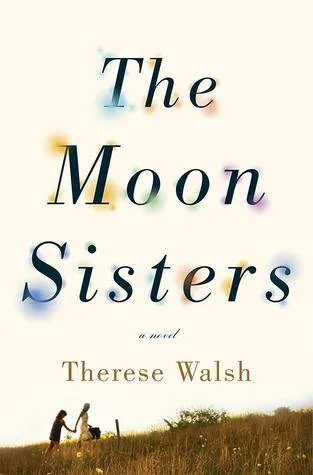 The Moon Sisters by Therese Walsh
Ever since I read The Moon Sisters twice in March of this year, this book has stayed with me, in my heart, in my mind, and in my life. The Moon Sisters is the second novel by Therese Walsh, who I consider to be one of the best writers today. In alternating chapters, the story is told in first person by sisters Jazz and Olivia Moon, providing the reader direct insight into individual family members’ experience of the same situations. The Moon Sisters deals with loss, grief, family, sisterhood, and parenthood. Add to these explosive ingredients Olivia Moon, a headstrong young woman with synesthesia, who blinds herself by looking into the sun before she goes off on a roadtrip to fulfill one of her late mother’s dreams. -EH Kern
The Moon Sisters by Therese Walsh
Ever since I read The Moon Sisters twice in March of this year, this book has stayed with me, in my heart, in my mind, and in my life. The Moon Sisters is the second novel by Therese Walsh, who I consider to be one of the best writers today. In alternating chapters, the story is told in first person by sisters Jazz and Olivia Moon, providing the reader direct insight into individual family members’ experience of the same situations. The Moon Sisters deals with loss, grief, family, sisterhood, and parenthood. Add to these explosive ingredients Olivia Moon, a headstrong young woman with synesthesia, who blinds herself by looking into the sun before she goes off on a roadtrip to fulfill one of her late mother’s dreams. -EH Kern
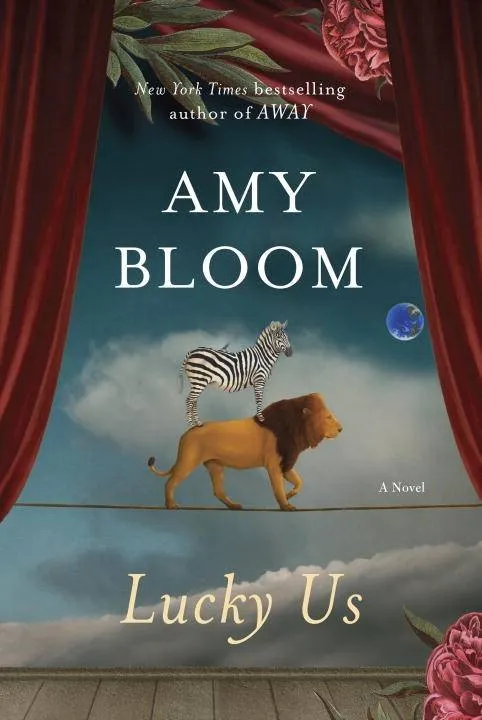 Lucky Us by Amy Bloom
I loved Lucky Us so much I have not seen it since I read it – it’s getting passed around to every single reader I know and I can only pray that it returns to me. The story is almost indescribable, but centers around two sisters, making their way in the World War II world, piecing together home, friends and family as they go along. The book is written in letters and in sort of fictional memoir. It’s got a whirlwind of a plot that zigs just when you’re sure it’s gonna zag: first it’s about the girls being deserted by their moms, running away from their dad, making it big in Hollywood, crapping out, returning to New York, finding love, taking on careers as showgirl, nanny, and tarot reader, acquiring children…omg, and that’s just to start. What I might love most is the way Bloom touches on just about every aspect of the modern novel conceit, without stopping to really examine anything in too much depth, so the themes– race relations, orphaned children, adultery, war, politics, sexuality– are very present and vibrantly crucial to the story, but the story is about the characters, period, and while they are made up of their issues, there is always something more, something loving and wonderful, to keep you in the moment and waiting for the next. There’s a reason it was a Riot Read book. We loved it, you will too. -Alison Peters
Lucky Us by Amy Bloom
I loved Lucky Us so much I have not seen it since I read it – it’s getting passed around to every single reader I know and I can only pray that it returns to me. The story is almost indescribable, but centers around two sisters, making their way in the World War II world, piecing together home, friends and family as they go along. The book is written in letters and in sort of fictional memoir. It’s got a whirlwind of a plot that zigs just when you’re sure it’s gonna zag: first it’s about the girls being deserted by their moms, running away from their dad, making it big in Hollywood, crapping out, returning to New York, finding love, taking on careers as showgirl, nanny, and tarot reader, acquiring children…omg, and that’s just to start. What I might love most is the way Bloom touches on just about every aspect of the modern novel conceit, without stopping to really examine anything in too much depth, so the themes– race relations, orphaned children, adultery, war, politics, sexuality– are very present and vibrantly crucial to the story, but the story is about the characters, period, and while they are made up of their issues, there is always something more, something loving and wonderful, to keep you in the moment and waiting for the next. There’s a reason it was a Riot Read book. We loved it, you will too. -Alison Peters
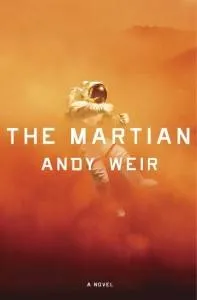 The Martian by Andy Weir
By all accounts, Andy Weir’s novel about a mission to Mars that lands one astronaut – believed to be dead by his crew – alone on the planet is not in my wheelhouse by any means. Sci fi, even hard sci fi, is a hard sell for me, despite my love for dystopian and post-apocalyptic fiction. But oh man, did it check all my boxes. It feels redundant to recap this book since it’s been ALL OVER the Riot this year. It came out in February, and while I had lots of favorites over the course of the year, this near-future sci-fi novel was the barometer by which I measured all others. The humor, the voice, the suspense – will he make it or won’t he – all marked the novel as the most entertaining book I read all year. And now that it’s being made into a movie (with Matt Damon starring as astronaut Mark Watney) I have even more reasons to shove it into everyone’s hands. And I do mean everyone – The Martian is officially being added to my list of Swiss Army recommendations. -Rachel Manwill
The Martian by Andy Weir
By all accounts, Andy Weir’s novel about a mission to Mars that lands one astronaut – believed to be dead by his crew – alone on the planet is not in my wheelhouse by any means. Sci fi, even hard sci fi, is a hard sell for me, despite my love for dystopian and post-apocalyptic fiction. But oh man, did it check all my boxes. It feels redundant to recap this book since it’s been ALL OVER the Riot this year. It came out in February, and while I had lots of favorites over the course of the year, this near-future sci-fi novel was the barometer by which I measured all others. The humor, the voice, the suspense – will he make it or won’t he – all marked the novel as the most entertaining book I read all year. And now that it’s being made into a movie (with Matt Damon starring as astronaut Mark Watney) I have even more reasons to shove it into everyone’s hands. And I do mean everyone – The Martian is officially being added to my list of Swiss Army recommendations. -Rachel Manwill
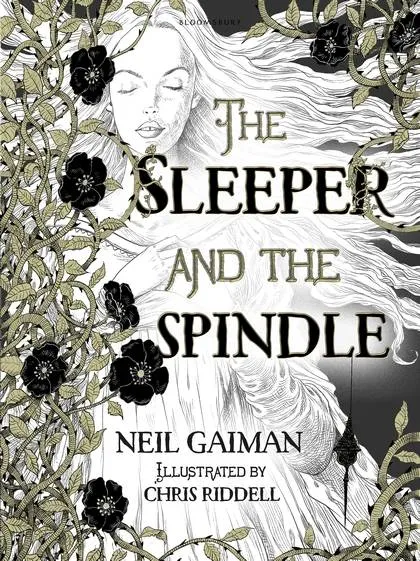 The Sleeper And The Spindle by Neil Gaiman
Always a fan of fairy tale retellings, this story was made even better by its beautiful illustrations by Chris Riddell. These illustrations enhance the book into something of a work of art, and a thing to treasure. But the story itself is also special and enchanting. Inspired by both Snow White and Sleeping Beauty, this is a tale that felt both timeless and empowering, with familiar parts of these traditional tale twisted around, and women as autonomous heroes and surprising villains. -Rah Carter
The Sleeper And The Spindle by Neil Gaiman
Always a fan of fairy tale retellings, this story was made even better by its beautiful illustrations by Chris Riddell. These illustrations enhance the book into something of a work of art, and a thing to treasure. But the story itself is also special and enchanting. Inspired by both Snow White and Sleeping Beauty, this is a tale that felt both timeless and empowering, with familiar parts of these traditional tale twisted around, and women as autonomous heroes and surprising villains. -Rah Carter
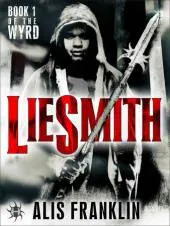 Liesmith by Alis Franklin
I rarely read currently, as I have such a huge backlog of books that I want to read, so the fact that I pulled Liesmith right off the first email I got from NetGalley says a lot for how attracted I was to it. It had all the right ticks for me: interracial romance (technically interspecies, but we won’t go into that), the protagonist is a Person of Color, there are fluid and thoughtful conversations about and concepts of sexuality, and the concept is based in a mythology that I didn’t have a great deal of experience with–so much so that I actually went back to read up on Norse Mythology. Add to that fascinating worldbuilding and excellent storytelling heavily infused with snark and adorableness, and it’s no wonder I’m still thinking about it. Is this the most highly-acclaimed, award-winning book published this year? Doubtful. Is it my favorite from the past twelve months? Most definitely. -Jessica Pryde
Liesmith by Alis Franklin
I rarely read currently, as I have such a huge backlog of books that I want to read, so the fact that I pulled Liesmith right off the first email I got from NetGalley says a lot for how attracted I was to it. It had all the right ticks for me: interracial romance (technically interspecies, but we won’t go into that), the protagonist is a Person of Color, there are fluid and thoughtful conversations about and concepts of sexuality, and the concept is based in a mythology that I didn’t have a great deal of experience with–so much so that I actually went back to read up on Norse Mythology. Add to that fascinating worldbuilding and excellent storytelling heavily infused with snark and adorableness, and it’s no wonder I’m still thinking about it. Is this the most highly-acclaimed, award-winning book published this year? Doubtful. Is it my favorite from the past twelve months? Most definitely. -Jessica Pryde
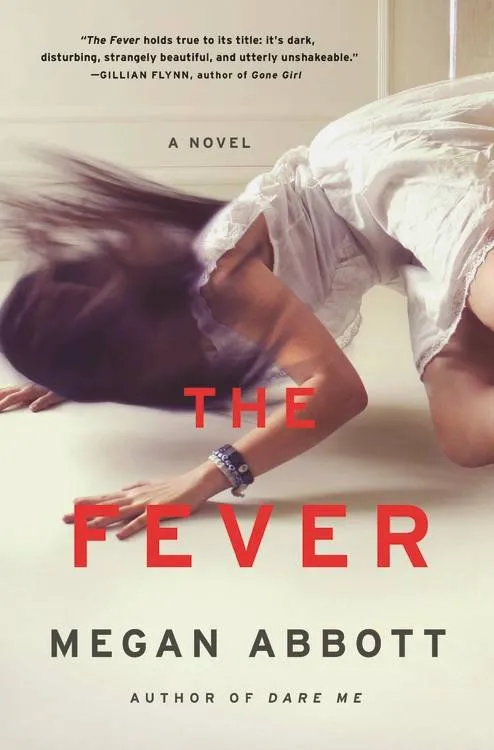 The Fever by Megan Abbott
Explorations of teen relationships that treat teen girls as actual human beings always fascinate me. I loved Dare Me and The End of Everything, so I just knew I’d love The Fever, too. I was very excited to get my hands on it, and once I did, I read it blazingly fast. Abbott’s writing is lovely and tense, and she perfectly captures the claustrophobic feeling of being a girl pulled in too many directions by different friend groups, family, and your own wants and desires. -Jeanette Solomon
The Fever by Megan Abbott
Explorations of teen relationships that treat teen girls as actual human beings always fascinate me. I loved Dare Me and The End of Everything, so I just knew I’d love The Fever, too. I was very excited to get my hands on it, and once I did, I read it blazingly fast. Abbott’s writing is lovely and tense, and she perfectly captures the claustrophobic feeling of being a girl pulled in too many directions by different friend groups, family, and your own wants and desires. -Jeanette Solomon
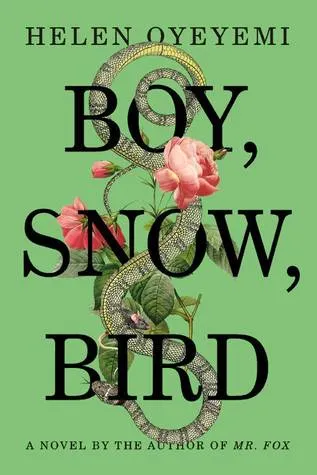 Boy, Snow, Bird by Helen Oyeyemi
Boy, Snow, Bird does the single most interesting thing in American letters: combine original style with the central American story, race. While Oyeyemi’s writing is unlike Morrison’s, it leads to a similar place: graceful, profound, and transformative art about identity, oppression, and transformation. Oyeyemi has repeatedly taken the allegorical nature of fairy tales and used it against them by bringing them back to our twisted, knotty lives, with endings that exceed our desires even as they defy them. -Jeff O’Neal
Boy, Snow, Bird by Helen Oyeyemi
Boy, Snow, Bird does the single most interesting thing in American letters: combine original style with the central American story, race. While Oyeyemi’s writing is unlike Morrison’s, it leads to a similar place: graceful, profound, and transformative art about identity, oppression, and transformation. Oyeyemi has repeatedly taken the allegorical nature of fairy tales and used it against them by bringing them back to our twisted, knotty lives, with endings that exceed our desires even as they defy them. -Jeff O’Neal
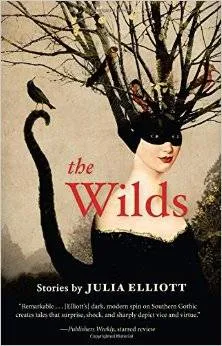 The Wilds by Julia Elliott
I had such a hard time picking my favorite book of 2014 so I chose The Wilds based on which author I’d like to read again. The creativity and unbridled view of the future is beautifully done in this Southern Gothic short story collection. I was fascinated by a short piece in which the elderly main character receives the help of robotic legs as she struggles with past romances. Another short is a bit more down to Earth, yet not so grounded at the same time– a young girl goes on a slumber party and witnesses the death of a friend’s religiously zealous grandmother. This is wacky, bizarre content, but with a nice dose of realism even in the most absurd points. If you like Karen Russell, this is a good choice for you. Tin House Books published the book and I can appreciate this, as well. This collection has a nice shot of quirkiness in it that isn’t found everyday and Tin House is the perfect vehicle to bring Julia Elliott’s work to readers. What surprised me about this collection though was that it never felt like it was overly striving for a literary voice, which many short story collections are plagued with. Instead, it was something to be lost in. Of the books I’ve read this year, this one made me want to read more and I look forward to her novel in 2015. -Jessi Lewis
The Wilds by Julia Elliott
I had such a hard time picking my favorite book of 2014 so I chose The Wilds based on which author I’d like to read again. The creativity and unbridled view of the future is beautifully done in this Southern Gothic short story collection. I was fascinated by a short piece in which the elderly main character receives the help of robotic legs as she struggles with past romances. Another short is a bit more down to Earth, yet not so grounded at the same time– a young girl goes on a slumber party and witnesses the death of a friend’s religiously zealous grandmother. This is wacky, bizarre content, but with a nice dose of realism even in the most absurd points. If you like Karen Russell, this is a good choice for you. Tin House Books published the book and I can appreciate this, as well. This collection has a nice shot of quirkiness in it that isn’t found everyday and Tin House is the perfect vehicle to bring Julia Elliott’s work to readers. What surprised me about this collection though was that it never felt like it was overly striving for a literary voice, which many short story collections are plagued with. Instead, it was something to be lost in. Of the books I’ve read this year, this one made me want to read more and I look forward to her novel in 2015. -Jessi Lewis
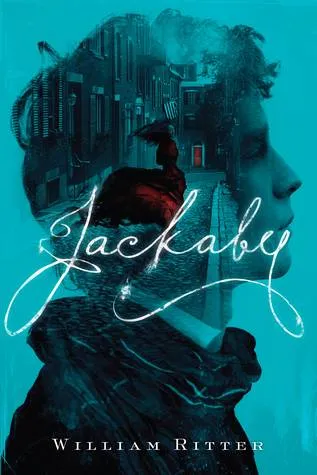 Jackaby by William Ritter
William Ritter’s debut novel Jackaby was sold to me as Doctor Who meets Sherlock Holmes. This might be the most apt book pitch I’ve ever heard. Take a dash of supernatural, mix it with the (good) Doctor-Companion dynamic and top it off with a preternaturally brilliant, but socially oblivious detective and you have the basic recipe for Jackaby. I’m desperately hoping that this is the start of a series that I will get to enjoy for sequels to come. The titular character is the detective in question whom our narrator becomes attached to via employment as his investigative assistant. Abigail Rook escaped the life of proper ladyhood to run off on an archeological dig that proved fruitless. When her travels washed her up in America, she was desperate for income and a roof over her head, two things R. F. Jackaby and his supernatural roommates were willing to provide, provided she was willing to accept their reality. At its core, Jackaby is a supernatural murder mystery and it skillfully keeps you at bay whilst tossing out the occasional red herring. One thing I should point out that I particularly adored was (and mind you, this book is branded as Young Adult) it is not a romance! – Brandi Bailey
Jackaby by William Ritter
William Ritter’s debut novel Jackaby was sold to me as Doctor Who meets Sherlock Holmes. This might be the most apt book pitch I’ve ever heard. Take a dash of supernatural, mix it with the (good) Doctor-Companion dynamic and top it off with a preternaturally brilliant, but socially oblivious detective and you have the basic recipe for Jackaby. I’m desperately hoping that this is the start of a series that I will get to enjoy for sequels to come. The titular character is the detective in question whom our narrator becomes attached to via employment as his investigative assistant. Abigail Rook escaped the life of proper ladyhood to run off on an archeological dig that proved fruitless. When her travels washed her up in America, she was desperate for income and a roof over her head, two things R. F. Jackaby and his supernatural roommates were willing to provide, provided she was willing to accept their reality. At its core, Jackaby is a supernatural murder mystery and it skillfully keeps you at bay whilst tossing out the occasional red herring. One thing I should point out that I particularly adored was (and mind you, this book is branded as Young Adult) it is not a romance! – Brandi Bailey
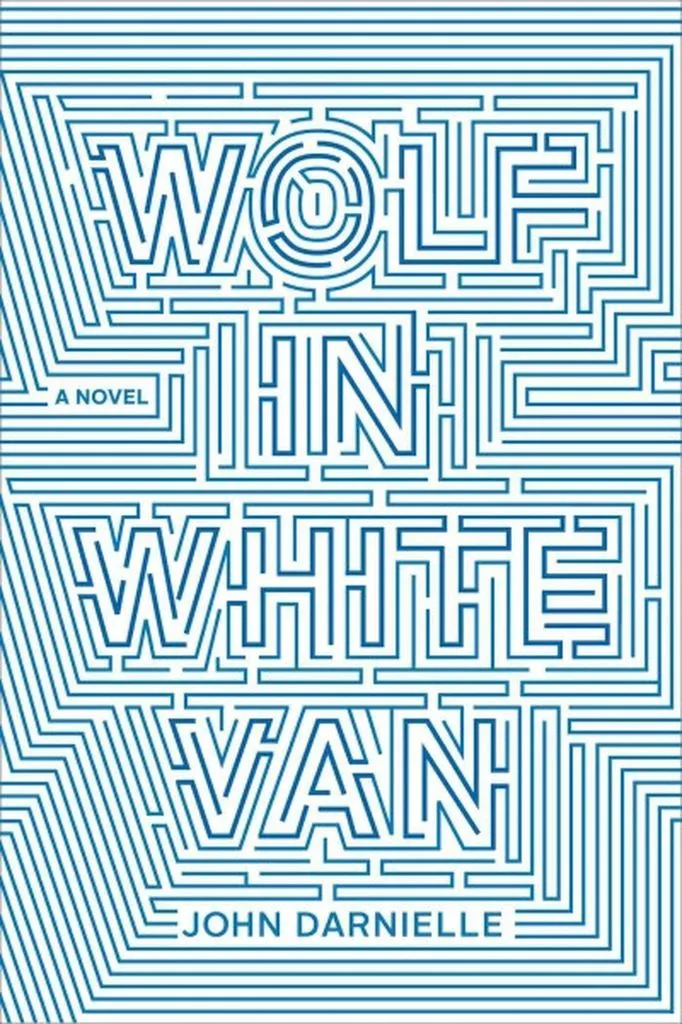 Wolf in White Van by John Darnielle
John Darnielle is my favorite songwriter, which is saying something for me considering that we live in a world that has Bruce Springsteen, and also since my brother is all the voice of his generation and stuff, so I was nervous going into this due to the potential it had to disappoint me (spoiler alert: it did not). It is, as often his songs are, a beautifully written, hopeful piece about a series of ugly, frightening things. It is about facial disfigurement and the difference between a child’s imagination vs. an adult’s and role playing through the apocalypse and hospital stays and high school and court cases and what happens when your inner life becomes vastly more appealing than your outer existence, and it’s about trauma that you’re forced to live with and trauma you have to let go of to live, and it is phenomenal. -Cristin Stickles
Wolf in White Van by John Darnielle
John Darnielle is my favorite songwriter, which is saying something for me considering that we live in a world that has Bruce Springsteen, and also since my brother is all the voice of his generation and stuff, so I was nervous going into this due to the potential it had to disappoint me (spoiler alert: it did not). It is, as often his songs are, a beautifully written, hopeful piece about a series of ugly, frightening things. It is about facial disfigurement and the difference between a child’s imagination vs. an adult’s and role playing through the apocalypse and hospital stays and high school and court cases and what happens when your inner life becomes vastly more appealing than your outer existence, and it’s about trauma that you’re forced to live with and trauma you have to let go of to live, and it is phenomenal. -Cristin Stickles
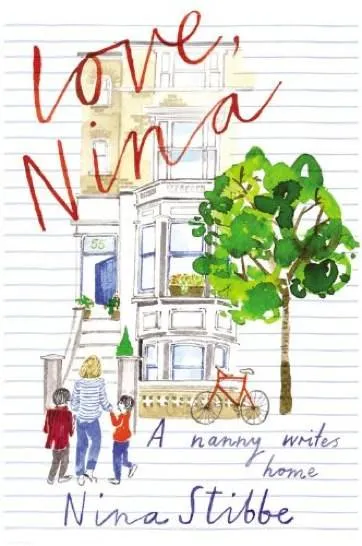 Love, Nina by Nina Stibbe
Love, Nina is eccentric and British and literary and witty and domestic and unconventional… all things that I love. It’s the true story of a nanny in London in the eighties, who moves in with the formidable Mary-Kay Wilmers, the long-time editor of the London Review of Books, to help out with her two sons. The whole book is letters that Nina (the nanny) wrote home to her sister, providing a glimpse behind the scenes of literary life in 1980’s London – complete with playwright and essayist Alan Bennett popping round for dinner. The New York Times compared it to 84, Charing Cross Road, and Nick Hornby called it funny and eccentric; for me it was an easy choice as my favorite new book of 2014. I already want to read it again. -Christy Childers
Love, Nina by Nina Stibbe
Love, Nina is eccentric and British and literary and witty and domestic and unconventional… all things that I love. It’s the true story of a nanny in London in the eighties, who moves in with the formidable Mary-Kay Wilmers, the long-time editor of the London Review of Books, to help out with her two sons. The whole book is letters that Nina (the nanny) wrote home to her sister, providing a glimpse behind the scenes of literary life in 1980’s London – complete with playwright and essayist Alan Bennett popping round for dinner. The New York Times compared it to 84, Charing Cross Road, and Nick Hornby called it funny and eccentric; for me it was an easy choice as my favorite new book of 2014. I already want to read it again. -Christy Childers
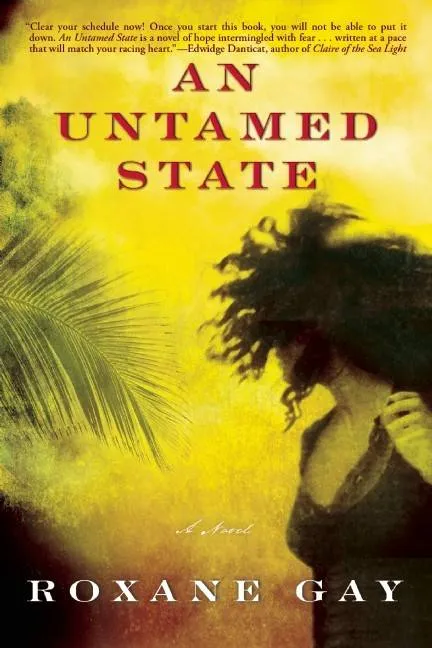 An Untamed State by Roxane Gay
This year Roxane Gay changed the conversation about literature, feminism, and pop culture. Her debut novel, An Untamed State, has stuck with me more than anything else I’ve read this year. It tackles political, social, cultural, and sexual issues that are often brushed aside in literature, and does so with gasp-causing precision. The raw power of the prose will make you reexamine what it means to be truly afraid, while the prose itself is fearless. While you’ll likely camp out and finish this book in a day or two, it will stay with you. -Aram Mrjoian
An Untamed State by Roxane Gay
This year Roxane Gay changed the conversation about literature, feminism, and pop culture. Her debut novel, An Untamed State, has stuck with me more than anything else I’ve read this year. It tackles political, social, cultural, and sexual issues that are often brushed aside in literature, and does so with gasp-causing precision. The raw power of the prose will make you reexamine what it means to be truly afraid, while the prose itself is fearless. While you’ll likely camp out and finish this book in a day or two, it will stay with you. -Aram Mrjoian
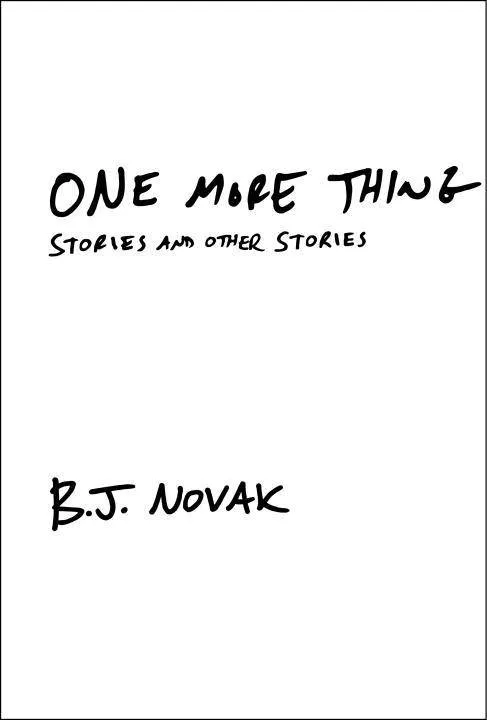 One More Thing: Stories and Other Stories by B.J. Novak
I didn’t really plan to read B.J. Novak’s short stories, but a friend picked me up a copy at a signing and I thought I’d give them a chance. I assumed this would be a celebrity vanity project, and I was so, so pleasantly surprised. The book is funny and smart and meta and is just on the edge of being too funny and too smart and too meta but never crosses the line. There was something about it that reminded me of some great midcentury humor writing, but it also felt very modern. My favorite stories in the bunch: “The Something by John Grisham,” “Kate Moss,” and “J.C. Audetat, Translator of Don Quixote.” (Book that might have edged this one out for my favorite of 2014 if I had finished it before this deadline: Texts from Jane Eyre) -Jesse Doogan
One More Thing: Stories and Other Stories by B.J. Novak
I didn’t really plan to read B.J. Novak’s short stories, but a friend picked me up a copy at a signing and I thought I’d give them a chance. I assumed this would be a celebrity vanity project, and I was so, so pleasantly surprised. The book is funny and smart and meta and is just on the edge of being too funny and too smart and too meta but never crosses the line. There was something about it that reminded me of some great midcentury humor writing, but it also felt very modern. My favorite stories in the bunch: “The Something by John Grisham,” “Kate Moss,” and “J.C. Audetat, Translator of Don Quixote.” (Book that might have edged this one out for my favorite of 2014 if I had finished it before this deadline: Texts from Jane Eyre) -Jesse Doogan
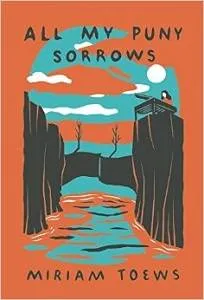 All My Puny Sorrows by Miriam Toews
(Agonizingly and narrowly beating out Into the Blizzard: Walking the Fields of the Newfoundland Dead by Michael Winter). It was my favourite at the mid-point of the year and it’s still my favourite now. This. Novel. Is. A. Triumph. (And it should have won the Giller, because the Giller people are ridiculous, but that’s ok I can forgive a lot of things.) -Brenna Clarke Gray
All My Puny Sorrows by Miriam Toews
(Agonizingly and narrowly beating out Into the Blizzard: Walking the Fields of the Newfoundland Dead by Michael Winter). It was my favourite at the mid-point of the year and it’s still my favourite now. This. Novel. Is. A. Triumph. (And it should have won the Giller, because the Giller people are ridiculous, but that’s ok I can forgive a lot of things.) -Brenna Clarke Gray
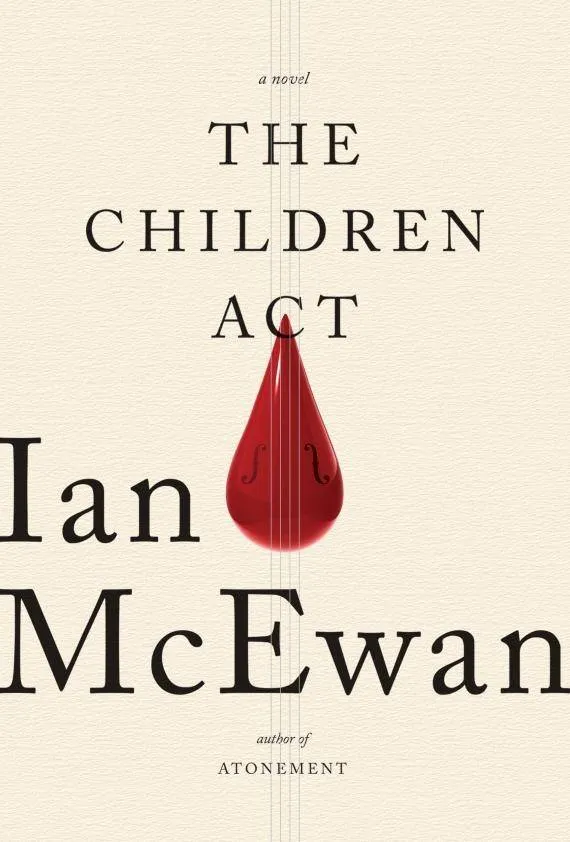 The Children Act by Ian McEwan
This sobering, beautifully written novel is about a family court judge presiding over the case of a seventeen-year-old Jehovah’s Witness who refuses a life saving blood transfusion on religious grounds. In the hands of a lesser writer this kind of story could easily become an obvious religious freedom vs. child welfare debate, but of course McEwan is smarter than that and delivers a page turning and thought provoking weekend read. -Kate Scott
The Children Act by Ian McEwan
This sobering, beautifully written novel is about a family court judge presiding over the case of a seventeen-year-old Jehovah’s Witness who refuses a life saving blood transfusion on religious grounds. In the hands of a lesser writer this kind of story could easily become an obvious religious freedom vs. child welfare debate, but of course McEwan is smarter than that and delivers a page turning and thought provoking weekend read. -Kate Scott
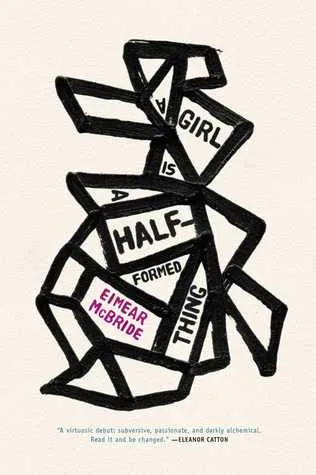 A Girl is a Half-Formed Thing by Eimear McBride
I don’t know if it’s because I’ve been paying better attention, or if this year truly was a landmark year for books that dug deep into women’s experiences. At the very least, it was for me. There were so many stunners: All the Birds, Singing by Evie Wyld; The Dept. of Speculation by Jenny Offill; This One Summer by Jillian and Mariko Tamaki; Friendship by Emily Gould; Bad Feminist by Roxane Gay; The Empathy Exams by Leslie Jamison; The Girl in the Road by Monica Byrne; Boy, Snow, Bird by Helen Oyeyemi; I am hard-pressed not to turn this into a full-fledged recap of each and every one of them. But the one that was the hardest and most rewarding read, probably because it was the furthest outside my comfort zone, was A Girl is a Half-Formed Thing. Written in fragmentary prose — which is not at all my usual jam — it tells a story small in plot but incredibly powerful in emotion. The main character’s life has been shaped by her older brother’s lifelong illness and her mother’s conflicted but intense piety, and she’s fighting a losing battle to find personal freedom. It’s a glorious and painful read from the first page to the last. -Jenn Northington
A Girl is a Half-Formed Thing by Eimear McBride
I don’t know if it’s because I’ve been paying better attention, or if this year truly was a landmark year for books that dug deep into women’s experiences. At the very least, it was for me. There were so many stunners: All the Birds, Singing by Evie Wyld; The Dept. of Speculation by Jenny Offill; This One Summer by Jillian and Mariko Tamaki; Friendship by Emily Gould; Bad Feminist by Roxane Gay; The Empathy Exams by Leslie Jamison; The Girl in the Road by Monica Byrne; Boy, Snow, Bird by Helen Oyeyemi; I am hard-pressed not to turn this into a full-fledged recap of each and every one of them. But the one that was the hardest and most rewarding read, probably because it was the furthest outside my comfort zone, was A Girl is a Half-Formed Thing. Written in fragmentary prose — which is not at all my usual jam — it tells a story small in plot but incredibly powerful in emotion. The main character’s life has been shaped by her older brother’s lifelong illness and her mother’s conflicted but intense piety, and she’s fighting a losing battle to find personal freedom. It’s a glorious and painful read from the first page to the last. -Jenn Northington
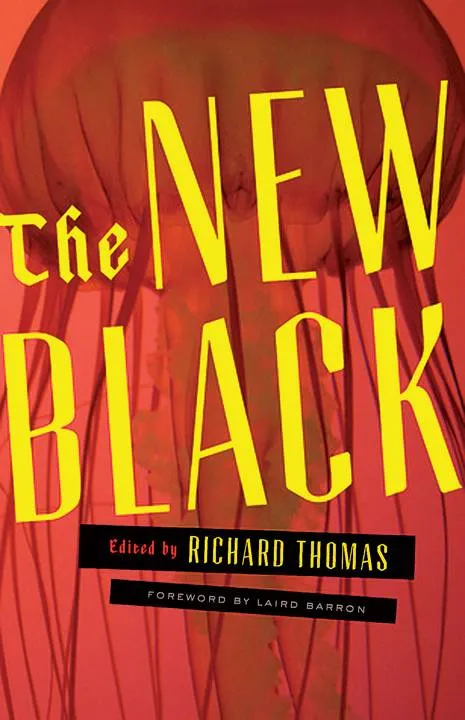 The New Black edited by Richard Thomas
This is an anthology of what the editor defines as “neo-noir.” I made the mistake when I started of both thinking that it was going to be the Raymond Chandler-type noir and, after reading the introduction, of thinking the stories were horror. I was wrong on both assumptions. This collection doesn’t have a single detective standing outside in the rain thinking about a broad that was more trouble than she is worth. What it does have, however, is a collection of stories that are all dark, and are all written by people possessed of talent. Roxane Gay’s story alone is worth the price of the book, as is Craig Wallwork’s. I’ve read a lot of anthologies this year (in fact, I think I read more anthologies than novels) and this, ladies and gentlemen, is the standout. Short story anthologies are like boxes of chocolate; you never like every piece, and people have different favorites. But The New Black, that’s the kind of chocolate box your mom would only buy at Christmas. A cut above the rest. -Johann Thorsson
The New Black edited by Richard Thomas
This is an anthology of what the editor defines as “neo-noir.” I made the mistake when I started of both thinking that it was going to be the Raymond Chandler-type noir and, after reading the introduction, of thinking the stories were horror. I was wrong on both assumptions. This collection doesn’t have a single detective standing outside in the rain thinking about a broad that was more trouble than she is worth. What it does have, however, is a collection of stories that are all dark, and are all written by people possessed of talent. Roxane Gay’s story alone is worth the price of the book, as is Craig Wallwork’s. I’ve read a lot of anthologies this year (in fact, I think I read more anthologies than novels) and this, ladies and gentlemen, is the standout. Short story anthologies are like boxes of chocolate; you never like every piece, and people have different favorites. But The New Black, that’s the kind of chocolate box your mom would only buy at Christmas. A cut above the rest. -Johann Thorsson
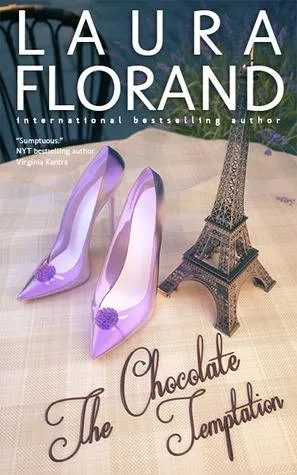 The Chocolate Temptation by Laura Florand
I feel like I spent the entire year raving about Laura Florand, and this book is a perfect example of why. Set in a three-Michelin-starred pastry restaurant, Florand takes a traditional Cinderella-esque story and twists it around so that both the charming prince and the dogged heroine wind up being their own “fairy godmothers,” all while maintaining the story’s fairy tale sensibility. Some people don’t like Cinderella stories, but I personally love them, not to mention charming-but-inwardly-broody heroes, multicultural heroines (Sara Lin is half-Korean), and romances that directly address power imbalances between the hero and heroine. If the beginning and ending of this book hadn’t dragged out unnecessarily, The Chocolate Temptation would be on my shortlist of favorite books EVER, and not just of 2014. -Tasha Brandstatter
The Chocolate Temptation by Laura Florand
I feel like I spent the entire year raving about Laura Florand, and this book is a perfect example of why. Set in a three-Michelin-starred pastry restaurant, Florand takes a traditional Cinderella-esque story and twists it around so that both the charming prince and the dogged heroine wind up being their own “fairy godmothers,” all while maintaining the story’s fairy tale sensibility. Some people don’t like Cinderella stories, but I personally love them, not to mention charming-but-inwardly-broody heroes, multicultural heroines (Sara Lin is half-Korean), and romances that directly address power imbalances between the hero and heroine. If the beginning and ending of this book hadn’t dragged out unnecessarily, The Chocolate Temptation would be on my shortlist of favorite books EVER, and not just of 2014. -Tasha Brandstatter
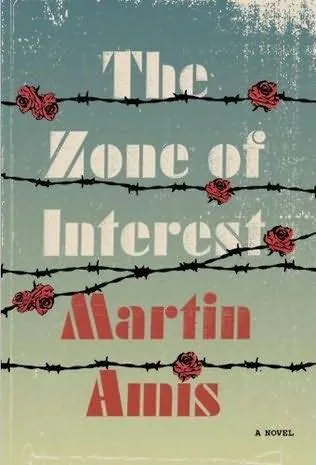 The Zone of Interest by Martin Amis
Writing a comic novel about the Holocaust is certainly a gamble, and there’s no question this book (and Amis in general) isn’t for everybody. Both his French and German publishers balked, and I was skeptical. But The Zone of Interest is funny, affecting, smart, sad, sick, and disgusting. His three narrators–a mini-Eichmann running a fictional Auschwitz, a Teutonic-Romantic public-private liaison, and a Jew who helps in the extermination in exchange for some extra food and a bit more time to live–revolve and move about the camp, with little more plot than the quotidian insanity guiding the action. But quotidian insanity is one thing comic novels are good for, dark comic novels in particular. The whole time I read this book I was deeply aware it wasn’t for everyone. But I was also aware that it may have been the most moving thing I’d consumed about the Holocaust in a long time. -Nicole Perrin
The Zone of Interest by Martin Amis
Writing a comic novel about the Holocaust is certainly a gamble, and there’s no question this book (and Amis in general) isn’t for everybody. Both his French and German publishers balked, and I was skeptical. But The Zone of Interest is funny, affecting, smart, sad, sick, and disgusting. His three narrators–a mini-Eichmann running a fictional Auschwitz, a Teutonic-Romantic public-private liaison, and a Jew who helps in the extermination in exchange for some extra food and a bit more time to live–revolve and move about the camp, with little more plot than the quotidian insanity guiding the action. But quotidian insanity is one thing comic novels are good for, dark comic novels in particular. The whole time I read this book I was deeply aware it wasn’t for everyone. But I was also aware that it may have been the most moving thing I’d consumed about the Holocaust in a long time. -Nicole Perrin
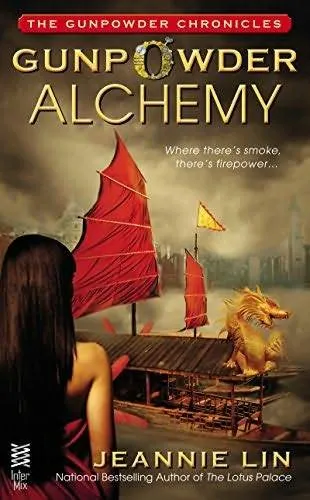 Gunpowder Alchemy (Gunpowder Chronicles Book 1) by Jeannie Lin
I enjoyed Lin’s Tang Dynasty historical romances, but I wasn’t exactly excited that she was branching out to steampunk fantasy. Steampunk is a genre that hasn’t really grabbed me: too many contraptions and infodumps, too little character and plot. But thankfully I put aside my reservations and gave Gunpowder Alchemy a try. It’s set in a nineteenth century when gunpowder-based China’s Qing Dynasty has lost its precious harbors to England’s steam powered ships and airships. After the defeat, Jin Soling’s engineer father was scapegoated by the furious Emperor, leaving her to provide for her opium-addicted mother and young brother in a rural community far from their home in Peking. Gunpowder Alchemy follows Soling’s story as she sets out for the city to sell one of her father’s old trinkets, and quickly finds herself embroiled in political and military intrigue, a pawn in various schemes to advance her father’s work. I was fascinated by the richly detailed setting — not just machinery, weapons and warfare, but culture, food, and dress — and the way that Victorian England was made strange by being narrated from Chinese characters’ perspectives. Soling is a great heroine in the YA tradition: smart but naive, her experiences and interactions broaden and complicate her worldview. Is it worth restoring a tarnished family name in a corrupt society? Who should Soling trust when she’s not even sure what she should want? This is the first book I’ve read this year that I’ve confidently shared with my middle grade and teen sons and my historian husband. Gunpowder Alchemy was a thrilling surprise in every way. -Jessica Tripler
Gunpowder Alchemy (Gunpowder Chronicles Book 1) by Jeannie Lin
I enjoyed Lin’s Tang Dynasty historical romances, but I wasn’t exactly excited that she was branching out to steampunk fantasy. Steampunk is a genre that hasn’t really grabbed me: too many contraptions and infodumps, too little character and plot. But thankfully I put aside my reservations and gave Gunpowder Alchemy a try. It’s set in a nineteenth century when gunpowder-based China’s Qing Dynasty has lost its precious harbors to England’s steam powered ships and airships. After the defeat, Jin Soling’s engineer father was scapegoated by the furious Emperor, leaving her to provide for her opium-addicted mother and young brother in a rural community far from their home in Peking. Gunpowder Alchemy follows Soling’s story as she sets out for the city to sell one of her father’s old trinkets, and quickly finds herself embroiled in political and military intrigue, a pawn in various schemes to advance her father’s work. I was fascinated by the richly detailed setting — not just machinery, weapons and warfare, but culture, food, and dress — and the way that Victorian England was made strange by being narrated from Chinese characters’ perspectives. Soling is a great heroine in the YA tradition: smart but naive, her experiences and interactions broaden and complicate her worldview. Is it worth restoring a tarnished family name in a corrupt society? Who should Soling trust when she’s not even sure what she should want? This is the first book I’ve read this year that I’ve confidently shared with my middle grade and teen sons and my historian husband. Gunpowder Alchemy was a thrilling surprise in every way. -Jessica Tripler
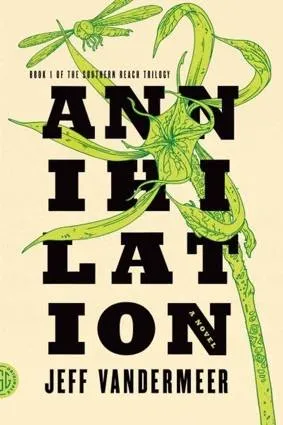 Annihilation by Jeff VanderMeer
It’s ridiculous how much I’ve talked about this book since I finished it last February. In that time, I’ve cornered family members, friends, certain trees, exotic snails, everyone, saying the same words every time: You Need To Read This.
Area X is a strange and pristine wilderness that sprang into existence many years ago, and since it’s inception, has been studied by the Southern Reach, a shadowy government agency tasked with deciphering Area X and its intent. Annihilation follows the four women of the twelfth expedition, as they once more breach the wall between our world and Area X, and chronicle what they find there. There is fascination and dread from page one, as these four women try to understand the landscape of Area X and work to plumb its depths for the truth. What follows is a harrowing, terrifying, poignant and heartbreaking exploration into humanity’s relationship with the world around, and ultimately, our relationship to each other.
I had to read this book slowly, like drinking a fine wine. Clocking in a little under two hundred pages, Annihilation can’t be rushed, nor should it. VanderMeer’s writing forces you to slow down, to notice everything, to work for every glimpse of understanding, every bit of truth to the real purpose of Area X. VanderMeer makes it look easy, flowing from moments of abject horror to deep and agonizing character study to exploration of the weird and uncanny. If you haven’t read Annihilation yet, please do, and come discover the haunting heart of Area X. -Martin Cahill
Annihilation by Jeff VanderMeer
It’s ridiculous how much I’ve talked about this book since I finished it last February. In that time, I’ve cornered family members, friends, certain trees, exotic snails, everyone, saying the same words every time: You Need To Read This.
Area X is a strange and pristine wilderness that sprang into existence many years ago, and since it’s inception, has been studied by the Southern Reach, a shadowy government agency tasked with deciphering Area X and its intent. Annihilation follows the four women of the twelfth expedition, as they once more breach the wall between our world and Area X, and chronicle what they find there. There is fascination and dread from page one, as these four women try to understand the landscape of Area X and work to plumb its depths for the truth. What follows is a harrowing, terrifying, poignant and heartbreaking exploration into humanity’s relationship with the world around, and ultimately, our relationship to each other.
I had to read this book slowly, like drinking a fine wine. Clocking in a little under two hundred pages, Annihilation can’t be rushed, nor should it. VanderMeer’s writing forces you to slow down, to notice everything, to work for every glimpse of understanding, every bit of truth to the real purpose of Area X. VanderMeer makes it look easy, flowing from moments of abject horror to deep and agonizing character study to exploration of the weird and uncanny. If you haven’t read Annihilation yet, please do, and come discover the haunting heart of Area X. -Martin Cahill
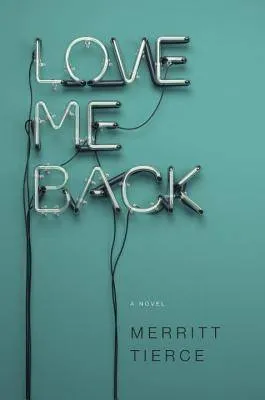 Love Me Back by Merritt Tierce
I love books about flawed people. I think about our collective flaws a lot, especially against the backdrop of our culture that’s so hungry to act as judge, jury, and executioner in the comments sections of the Internet. In Love Me Back, Marie is a self-destructive teen mother who loses custody of her infant daughter to the only man who ever loved her. Working odd jobs in restaurants around Houston, she keeps right on that path of sex, drugs, and self-destruction to the bitter end — girl just can’t keep her shit together. Love Me Back isn’t a happy story, but it’s a beautiful and true story. It’s a prayer to everything broken, vulnerable, and human in each of us. -Rachel Smalter Hall
Love Me Back by Merritt Tierce
I love books about flawed people. I think about our collective flaws a lot, especially against the backdrop of our culture that’s so hungry to act as judge, jury, and executioner in the comments sections of the Internet. In Love Me Back, Marie is a self-destructive teen mother who loses custody of her infant daughter to the only man who ever loved her. Working odd jobs in restaurants around Houston, she keeps right on that path of sex, drugs, and self-destruction to the bitter end — girl just can’t keep her shit together. Love Me Back isn’t a happy story, but it’s a beautiful and true story. It’s a prayer to everything broken, vulnerable, and human in each of us. -Rachel Smalter Hall
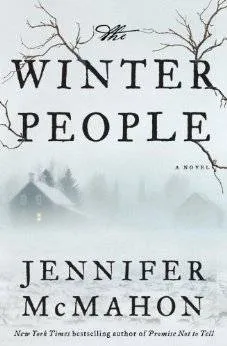 The Winter People by Jennifer McMahon
The Winter People by Jennifer McMahon
This book didn’t get much hype, but it came out at the beginning of the year and I could not put it down. I read right through it in two days (which is very fast for me). It’s creepy, but not so scary that you can’t read at night. It keeps you guessing until the end, and there is something for those who love supernatural, mystery, historical fiction, and a little thriller/light horror. Now that it’s winter again, it’s the perfect time to pick up this book, curl up under some blankets, and give yourself a good thrill. Be prepared to not stop reading until the end! -Wallace Yovetich
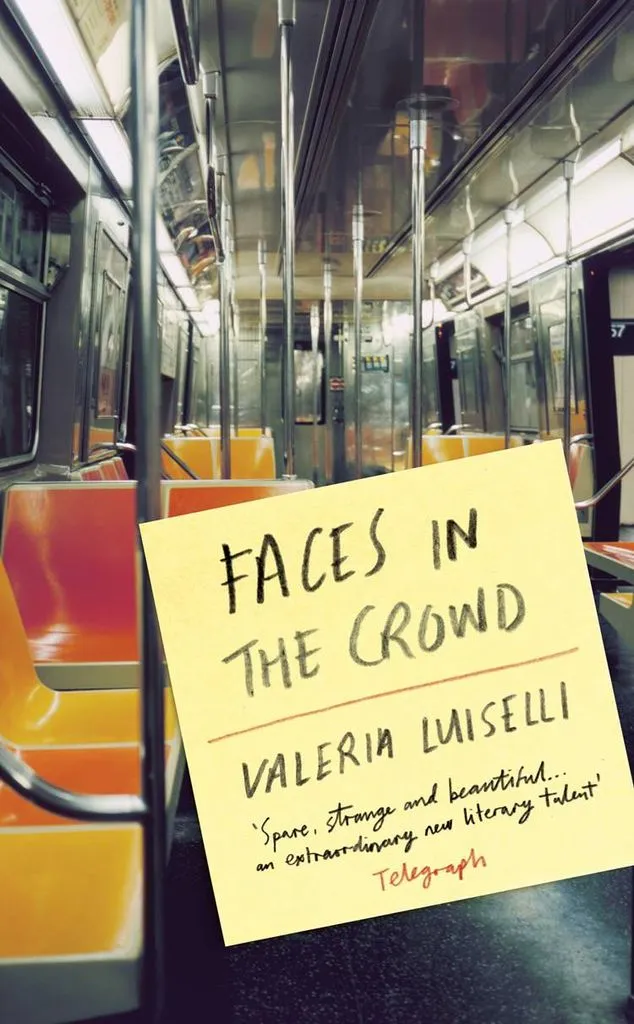 Faces in the Crowd by Valeria Luiselli
Faces in the Crowd by Valeria Luiselli
What does it say that my three favorite books this year were all written by women? (And two-thirds of those written by non-U.S. authors.) Are publishers taking more chances on diverse voices? Are media outlets more willing to publicize writers who don’t look like a version of Jonathan Franzen? Whatever’s happening, let’s double down in 2015.
Two of my Top Three of 2014 were chosen by other Rioters for this list. (Right on, Jenn and Kim!) My pick is the effortlessly modern, undeniably charming Faces in the Crowd. Open this book and you’re sure to connect with something in Valeria Luiselli’s bohemian storyline: Stifled creativity. Complicated relationships. Beauty. Art. Clogged toilets.
Written in short, deceptively simple vignettes that vacillate between real time and flashbacks, Faces in the Crowd will engage you with such easygoing skill, you might not notice it’s pure genius. -Margret Aldrich
What was your favorite book of 2014? ____________________ The Book Riot Store is here! Get your favorite Book Riot t-shirts, bookish totes, and other literary swag to wear, share, and show off!







